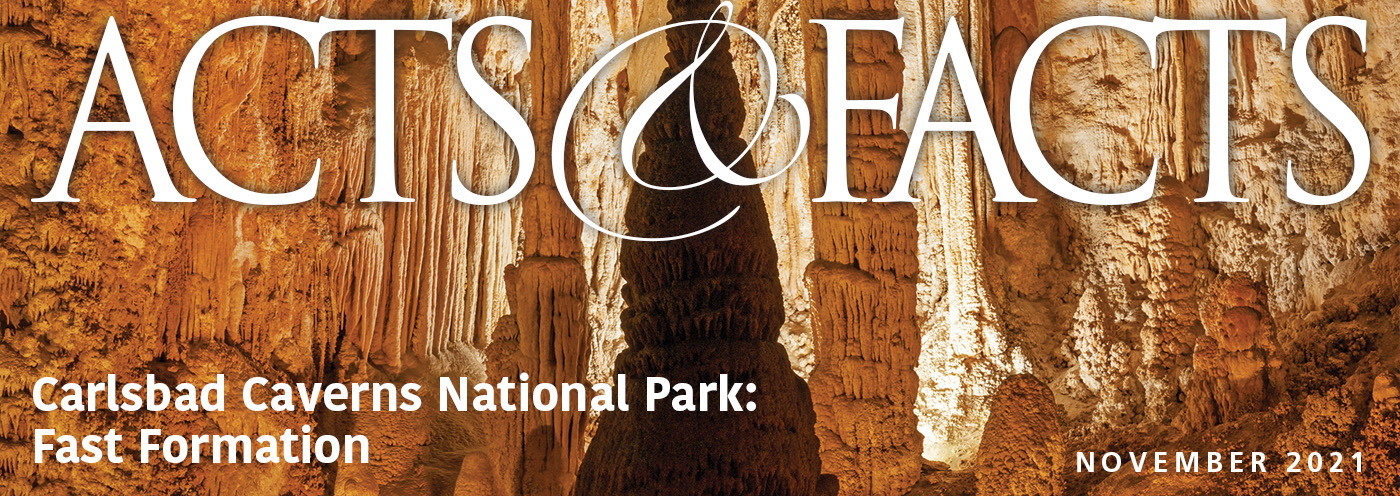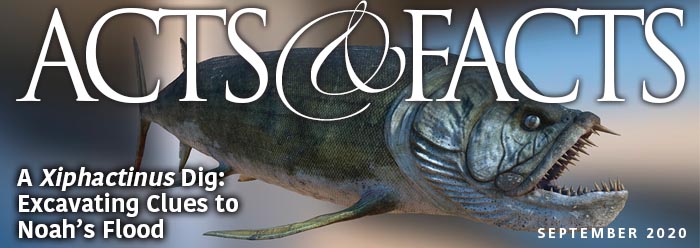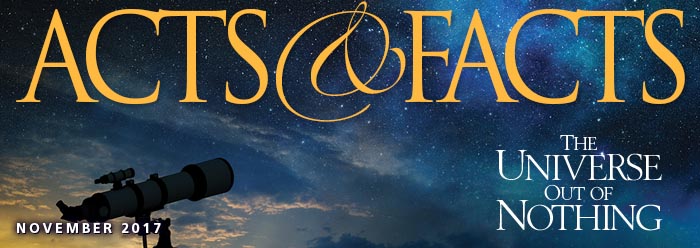On July 20, 1969, as astronaut Neil Armstrong took that historic first "step for mankind" onto the dusty, desolate surface of the moon, there was great excitement and joy back at Mission Control in Houston, Texas and all around the world as millions watched and listened to this amazing event. This relatively simple first step was the culmination of almost a decade of dedicated planning, preparation, and testing.
Almost two thousand years ago there was an event even more amazing, and greatly more significant, when God visited the earth in the person of Jesus, the promised Messiah. We celebrate this event each Christmas. In reviewing these two events, we find some striking parallels, as well as some important differences. As we ponder this comparison we gain new insight and appreciation for the infinitely greater significance of God's visit to the earth to reconcile lost humanity to Himself.
Years of Preparation
Man's landing on the moon was the result of much hard work and years of intensive preparations. The Apollo program, which began with the commitment made by President Kennedy in 1961, had to be preceded by many preliminary programs, including Mercury, Gemini, Ranger, Surveyor, and Orbiter, to develop the technology for space travel and prepare the way for the coming manned landing.
Likewise, God prepared mankind for His earth visit (the birth of the Messiah) over many years, starting with the first hint of His plan of redemption in Genesis 3:15, the verse considered to be the "prototype" of the gospel promise. Over the centuries God ordained His chosen people and His prophets, such as Abraham, Moses, David, Isaiah, and others, to foretell His promised coming to earth. Finally, when that time came, He ordained John the Baptist to "prepare the way of the Lord" (Isaiah 40:3; John 1:23).
Great Wisdom and Power
The Apollo mission required the combined intelligence of thousands of highly trained scientists, engineers, test pilots and technicians. With the moon almost one-quarter million miles away, it required the most powerful rocket (Saturn 5) yet. This was truly a demonstration of great wisdom and tremendous power.
Likewise, God demonstrated His infinite knowledge and His exceedingly great power when He launched His divine plan for the redemption of fallen, sinful mankind. This wisdom and power were evident in the miraculous virgin birth of the Messiah, His miracles, and in His resurrection after His sacrificial death on the cross. Only the all-wise, all-powerful Jehovah God could accomplish these mighty miracles.
Great Cost
The Apollo program cost over 30 billion dollars to accomplish its mission. God also paid a great price for His mission. It cost Him the shed blood and sacrificial death of His beloved, only-begotten Son, Jesus the Messiah.
Precise Timing
The entire moon-landing mission was carried out on a precise schedule. The launch time, the times to start and stop the thruster rockets, the time to descend to the lunar surface, and all other events were executed on a very exact schedule. Any deviation from the schedule could have been disastrous. It all had to be according to the master plan.
Likewise, God in His wisdom worked out His plan of salvation for mankind on a precise schedule. As Paul wrote in Galatians 4:4, "when the fullness of the time was come, God sent forth His Son, made of a woman, made under the law."
God's program for His created universe, and for mankind in particular, is on a time schedule known only to Him (Acts 1:7). The promised return of Messiah, the great tribulation, and the restoration of David's kingdom are all precisely scheduled, but in His wisdom God thought it best not to reveal the timing to us. However, we can be sure God will bring all His prophecies and promises about at exactly the right time.
Three in One
Three men went to the moon in Apollo 11, but only two descended to its surface. The third (Michael Collins) remained in orbit around the moon, very much aware of, and involved in, what his colleagues were doing down below.
This reminds us of the triune nature of the Godhead: Father, Son, and Holy Spirit. Although, admittedly, the analogy is imperfect, yet it is instructive to recognize only the Son and the Holy Spirit have been on the earth, while the Father remains "in orbit" above, very much aware of, and intensely interested in, all that goes on down below.
Special Bodies
The astronauts could not go to the moon in their natural bodies. They needed "special bodies;" i.e., space suits designed to survive in the harsh, airless environment of the moon. The specially designed space suit protected the men from the sun's blazing radiation and from micrometeorites, at the same time providing them air to breath.
When God visited our planet earth, He too chose to put on a "special body," appropriate for His ultimate mission objective; i.e., physical death for our redemption. Rather than come in all His majestic glory and power, ". . . Christ Jesus, who being in the form of God . . . took upon Him the form of a servant, and was made in the likeness of men; . . . He humbled Himself, and became obedient unto death, even the death of the cross" (Philippians 2:5-8).
Unspectacular Landing Spot
The astronauts left their home planet (a place filled with beauty and teeming with life), to visit a drab, lifeless place with no air, no oceans, no blue sky, no clouds, where the sky is always black, and the "terrain" strewn with dust, rocks, scars, and impact craters. They landed on the moon's "Sea of Tranquillity," a dry, flat, unspectacular region where no majestic mountains nor scenic valleys exist.
Likewise, Jesus left the unimaginable glories of His heavenly home to descend to a spiritually dark, sin-cursed planet filled with misery, sickness, oppression, and death. He did not land in any great city like Rome, Athens, Alexandria, not even in Jerusalem, the holy city, the "city of peace." Instead He chose to come to the humble little town of Bethlehem, ". . . little among the thousands of Judah . . ." (Micah 5:2). And thus He condescended to be born in a stable and sleep in a manger.
Onlookers Cheered Arrival
There was great joy and satisfaction at Mission Control headquarters when the lunar module "Eagle" touched down at Tranquillity Base. All the onlookers at Mission Control cheered the safe arrival of the visitors from earth. Likewise when Jesus arrived in Bethlehem, there was a heavenly host of angelic onlookers with great rejoicing (Luke 2:13,14).
Constant Communication
After their arrival on the moon, the astronauts kept in constant radio communication with Mission Control. Jesus likewise kept in constant communication with "Mission Control" in heaven. He taught His disciples and us to pray much. Prayer is the greatest communication equipment available to man, and we should not neglect this privilege.
Brief Stay
In spite of the long years of preparation, the lunar visitors stayed on the surface for a relatively short time—just enough time to fulfill their mission. Jesus, the long promised Messiah, after centuries of promise and preparation, spent only a short time (approximately 33 years) on our planet, with only the last three of those years devoted to His ministry. But Jesus stayed long enough to fulfill His mission—that of paying the penalty of our sins on the cross, that by faith in Him we "might not perish but have everlasting life" (John 3:16).
Memorial and Instruments Left Behind
The astronauts, when they departed, left behind footprints, a memorial plaque, and some faithful scientific instruments which are still in use. The plaque contains a picture of the two hemispheres of earth and is embossed with these words:
FIRST SET FOOT UPON THE MOON
JULY 1969, A.D.
WE CAME IN PEACE FOR ALL MANKIND
On that plaque are four names with corresponding signatures: Neil Armstrong, Michael Collins, Edwin Aldrin, Jr., and Richard Nixon. This plaque will forever remain on the moon to remind future visitors of this historic event.
Jesus also left His footprints on the earth; but, more significantly, He left a blood-stained cross and an empty tomb to remind all future earthlings of His historic visit. He also left "instruments" behind, the disciples who eventually became the apostles. It is their faithful communication of the gospel truth that has been transmitted down through the centuries and around the world to "every tribe and nation," "to the Jew first, and also to the Gentile," that constantly reminds us of Christ's visit to the earth.
Now we believers are likewise His "instruments of righteousness" (Romans 6:13), commissioned to continue the spreading of God's truth to all mankind.
Returned Home
The Apollo astronauts resumed safely home after fulfilling their brief but significant mission. Jesus returned to His heavenly home after completing His redemption mission for us. His last words on the cross were, "It is finished."
Hallelujah, what a Savior!
The above parallels are, to say the least, intriguing. We must, however, also recognize some significant differences between the two events.
Life and Death
The astronauts did not intend to die on the moon, even though the risk was great. Jesus, on the other hand, came to earth for the purpose of dying, thereby accomplishing God's plan of salvation for mankind.
Purpose, Motivation, and Benefits
The purposes of the two missions were vastly different. The Apollo program was primarily motivated by man's curiosity and desire for adventure and scientific knowledge; it was also prompted by a national determination to outdo the Soviets in space technology. The United States desperately wanted to win the "space race."
The Apollo mission did not accomplish "PEACE ON EARTH FOR ALL MANKIND" as hoped, nor did it result in any benefits to the moon. On the contrary, the rugged lunar landscape was left littered with debris. Other hardware was abandoned along the flight paths to become "space junk."
In contrast, God's mission was motivated by His great "agape" type of love for fallen mankind. Jesus not only worked non-destructive miracles while here, but, more importantly, through His sacrificial death on the cross, and triumphant resurrection from the dead in victory over sin and death, He brought to us forgiveness and more abundant life (quality, not quantity), and everlasting life.
World Acclaim/Rejection
There is also a great contrast between the acclaim that the astronauts received versus the rejection that Jesus experienced. When Armstrong and Aldrin walked on the moon, they were highly praised and congratulated by the ruler of their country, President Nixon, and by many other world leaders. Newspaper headlines proclaimed in big letters: "MEN WALK ON THE MOON," and "ticker-tape" parades were given in their honor when they returned to earth. The entire civilized world rated them as great heroes.
In contrast, when Jesus came to earth, only the humble shepherds of Bethlehem rejoiced, along with a few other believing men and women. The Magi came to worship Him as the promised "King of the Jews," but when Herod, the local ruler, heard of this, he tried to have this King Jesus killed. When Jesus later began His brief three-year public ministry, most of His own people (the Jews) and particularly their religious leaders, rejected His claim of Messianic deity and had Him put to death as a blasphemer. "He came unto His own, and His own received Him not" (John 1:11).
The similarities between these two great historic events are amazing, and the contrasts are significant; but, God's visit to our planet is infinitely more important and meaningful. Praise Him for His wonderful grace!
* Mr. Schrank (ME, MSEE) is a retired electronics engineer living in Maryland.
















